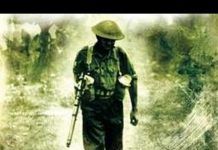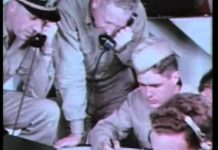Cold War tensions were perhaps never more tremulous than beneath the chilling depths of the ocean waters. This little-discussed aspect of the conflict between the East and West – a period of time marked by threats of mass casualties and nuclear devastation – sets the groundwork for the fascinating documentary Submarines: In Enemy Depths. For the uninitiated, the insights into submarine warfare are particularly illuminating, and they paint a portrait of the horrors of war to which many have remained unaware. The film utilizes the moving testimonies of surviving crew members from both sides of the conflict to great effect in order to shape its narrative. They speak of the many top-secret missions, close calls and unimaginable tragedies that characterized their perilous time at sea. The history of the failed K-19 mission is one such story they share. The Soviet sub was one of the country’s first to be armed with nuclear capabilities, and its hasty construction led to a series of deadly calamities. Soviet Navy personnel recall the heroics of their brave comrades who worked to correct a malfunction in the submarine reactor’s cooling system. These men paid the ultimate sacrifice for their service. Radiation exposure left them with ravaged skin, damaged vocal chords, swollen necks, and mere days to live. To this day, the details of some missions remain an enigma even to the principal players. Such is the case with the K-129. The film details its mysterious destruction in 1968 – the prelude to which may have been its attempt to launch missiles into Hawaii – as well as its failed recovery attempt by the United States six years later. Viewers are also given an insider’s perspective of the mysterious NR-1, a small research sub that was specially constructed for espionage missions by the United States. Submarines: In Enemy Depths provides a treasure trove of observations regarding militarized conflict and warfare technologies during this troubled period in history. Others will find great pathos in the haunted faces of those who served, and who risked their lives in claustrophobic vessels which could have easily become their icy caskets.
POPULAR PICKS
LATEST ADDITIONS
© Copyright 2017-2022 - Gratis Global Ltd. All rights reserved.

































